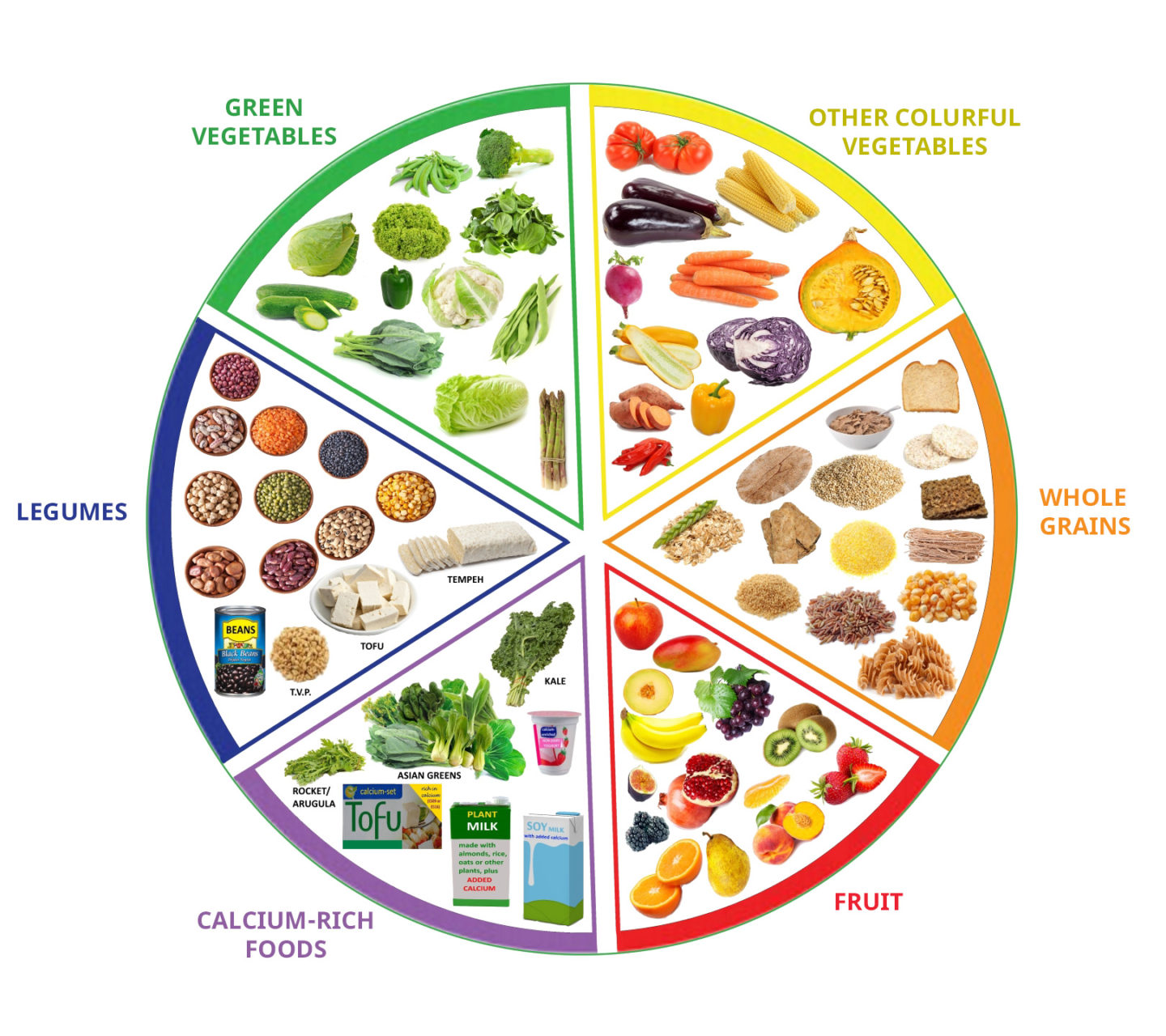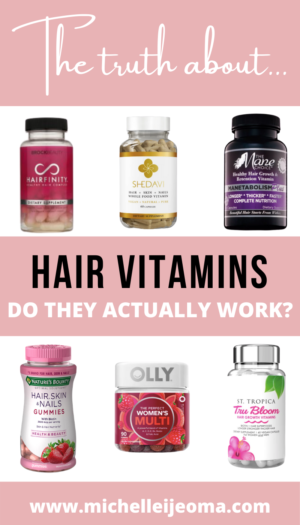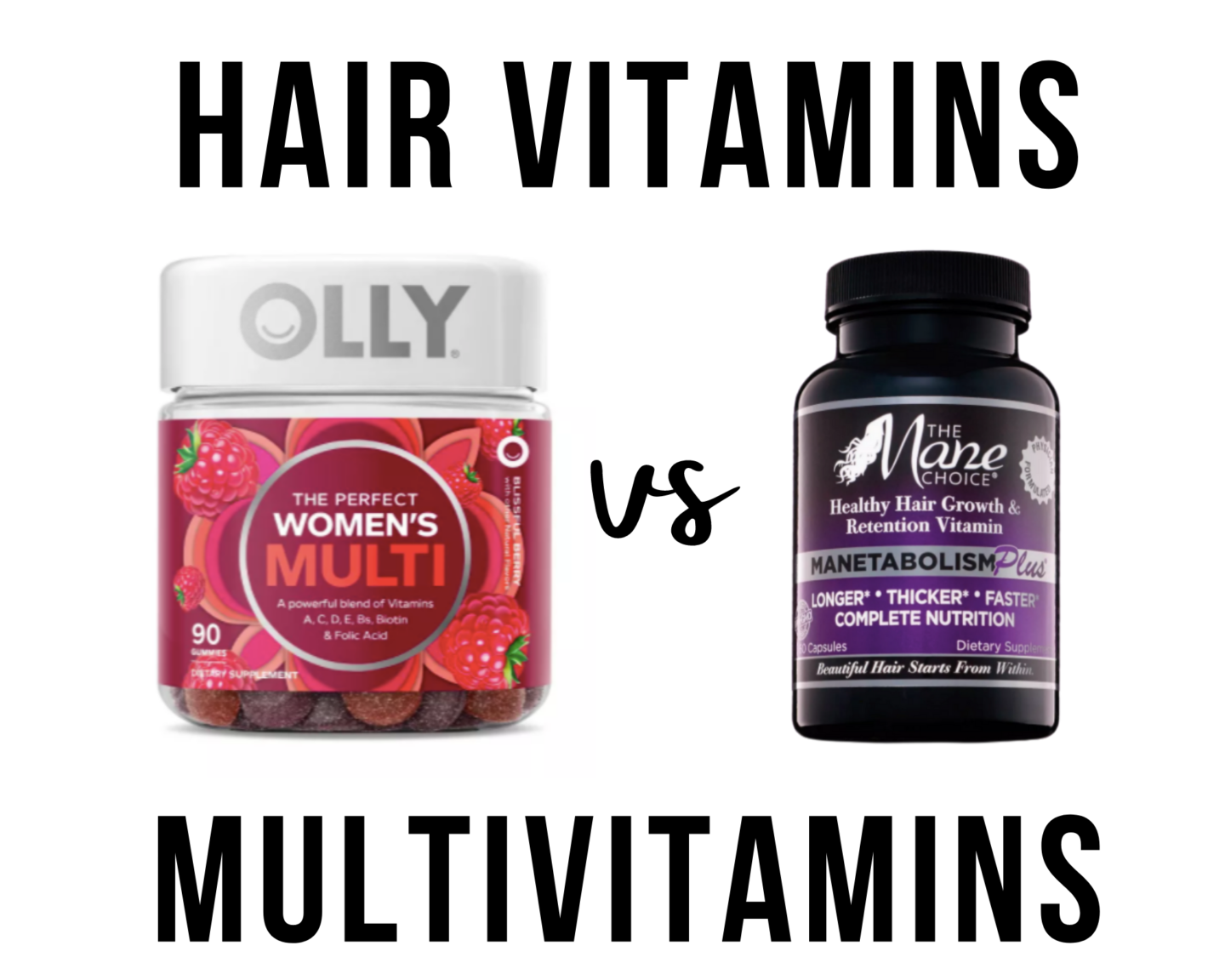 With new hair vitamins hitting the market every five minutes, long-hair-enthusiasts like myself want to know whether or not hair vitamins really work. We know that our bodies need specific vitamins and nutrients to promote hair growth, prevent hair loss, minimize excessive shedding, curve unnecessary thinning, and to avoid breakage. But, we all want to know whether the vitamins and nutrients found in these delicious growth gummies, pesky pills, and small soft gels are worth buying, especially during these uncertain times.
With new hair vitamins hitting the market every five minutes, long-hair-enthusiasts like myself want to know whether or not hair vitamins really work. We know that our bodies need specific vitamins and nutrients to promote hair growth, prevent hair loss, minimize excessive shedding, curve unnecessary thinning, and to avoid breakage. But, we all want to know whether the vitamins and nutrients found in these delicious growth gummies, pesky pills, and small soft gels are worth buying, especially during these uncertain times.
So, today, I’m talking all about hair vitamins! I’m sharing my thoughts on whether they work, how to find good ones, and which ones I use. So, if you’re interested, keep scrolling or, if you don’t feel like reading, check out this video: DO HAIR VITAMINS REALLY WORK? Hair vitamins and multivitamins for hair growth.
Do hair vitamins really work?
The truth is it depends. At least that’s what I learned from hours of research and endless discussions with my doctor, doctor friends, and doctor bar.
The consensus is that hair vitamins and multivitamins help address vitamin and nutrient deficiencies. In other words, if you eat all the fruits, vegetables, grains, proteins, fats, and foods that doctors recommend in the recommended daily quantities, then you don’t need to take a vitamin. Why? Because you’re getting all the vitamins and nutrients, you need to support your essential organs and promote healthy hair through the foods you eat.
 However, if you struggle to eat all the recommended foods in the recommended amounts, then a hair vitamin or multivitamin may help address any vitamin and nutrient deficiencies.
However, if you struggle to eat all the recommended foods in the recommended amounts, then a hair vitamin or multivitamin may help address any vitamin and nutrient deficiencies.
When you have a vitamin or nutrient deficiency, sometimes it manifests in your hair. For example, you may experience excessive shedding, thinning, breakage, or stunted growth. That’s where a quality multivitamin or hair vitamin comes into play. The vitamin helps your body address the deficiency so that your body can service your life-sustaining organs and then your hair.

The bottom line is if your body doesn’t have enough vitamins and nutrients to support your essential organs – i.e., the organs that keep you alive – then it won’t divert any of those vitamins or nutrients to your hair. So, eat all the recommended foods or supplement your diet with a vitamin so that your body has what it needs to keep your body and hair flourishing.
How to find good hair vitamins that work?
Like I mentioned before, there are tons of hair vitamins and multivitamins out there, and the first thing to keep in mind is none of them are FDA regulated, FDA approved, FDA evaluated. Meaning there’s no federal agency regulating or validating the quality or efficacy of any vitamin on the market. So, it’s up to you to do your research, talk to your doctor, read reviews, evaluate anecdotal evidence, assess the ingredients on the bottle, and note where your vitamins are manufactured to know that you’re getting good quality vitamins.
What I look for in my vitamins?
Some of the things I pay attention to are whether the vitamin contains:
- Fillers or bullying agents. Fillers are agents that enable the vitamins to flow through manufacturing equipment without damaging them. They also make vitamins taste better and look cuter. Bulking agents are additives that help keep the ingredients together. While they don’t affect active ingredients, they are unnecessary ingredients.
- Daily Value Percentage. The daily value percentage of each vitamin and mineral. I look to see whether or not the daily value percentage is around a hundred percent of the daily value because I want to make sure that the vitamin I take doesn’t have an excessive amount of one particular vitamin or mineral.
Why does it matter? Because some vitamins and minerals are toxic to your body when taken in excess. More importantly, the body only uses what it needs to support your organs, and it discards the rest through your urine.
My recommendation: run your vitamins by your doctor if it’s possible.
- Vitamins, Minerals, and Nutrients. I look for vitamins that contain vitamins A, B complex, C, E, and Biotin; nutrients like MSM, collagen, keratin, astaxanthin; and minerals like calcium, zinc, selenium, manganese, silica. FYI, this is not an exhaustive list.
Are hair vitamins better than multivitamins? 
In my opinion, hair vitamins and multivitamins essentially do the same thing. However, I prefer hair vitamins over multivitamins. Hair vitamins usually contain everything that an average multivitamin has and other nutrients that help support healthy hair growth. For example, you’ll find things like MSM, silica, selenium in a good hair vitamin. But, you might not find them in a regular multivitamin.
Again, I use multivitamins too because they are easily accessible and often slightly more affordable. The bottom line, they pretty much do the same thing.
What are some of my favorite vitamins?
Right now, I’m using St. Tropica Tru Bloom Hair Vitamins and Olly’s Women’s Multivitamin.

I like these vitamins because they don’t have an excessive amount of vitamins or minerals. I love that I haven’t experienced any unusual breakouts or weird pimples since using these vitamins. More importantly, my new growth is growing out nice, thick, and healthy. Full review coming soon.
Until next time, xoxo!